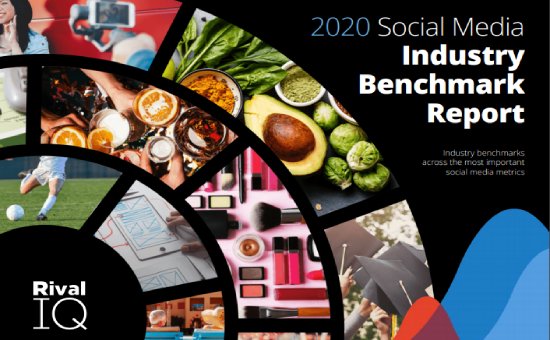How Technology Marketers Lead the Way in AI Experimentation | Content Marketing Institute
Artificial Intelligence
|
Warning: Undefined array key 0 in /home/dmc/public_html/wp-content/themes/DMC/single-report.php on line 21
Warning: Attempt to read property "name" on null in /home/dmc/public_html/wp-content/themes/DMC/single-report.php on line 21
AI use: 79% of technology marketers use generative tools
Numerous participants anticipate an increase in employing AI for content creation. Indeed, 79% report utilizing AI for tasks related to content. How do they apply it?
A majority (53%) leverage generative AI for ideating new subjects. Approximately half utilize these tools for drafting articles (48%) and conducting headline and keyword research (43%). A smaller proportion mentioned using AI for structuring assignments (29%), editing (19%), producing graphics/images (10%), and creating videos (7%) and audio content (7%).

The majority haven’t invested in generative AI tools (so far)
Among users of generative AI tools, a vast majority of 88% opt for no-cost options (such as ChatGPT). Thirty-seven percent utilize tools integrated into their content creation or management systems, while 30% subscribe to paid services like Writer and Jasper.
Regulation of AI in content creation is still limited
In response to inquiries about whether their organizations have established protocols for the use of generative AI tools, only 26% confirmed they do, 63% indicated they do not, and 11% were uncertain.

“Organizations typically struggle with adapting to rapid changes,” notes Yadin Porter de León, a global content marketing leader. “The rapid evolution brought about by generative AI tools is a challenge that many are still trying to comprehend. Hence, it’s not surprising that guidelines for its use are scant, as many are unsure of how to proceed.”
Yadin advises marketers to:
– Train team members to at least understand the basics of AI.
– Form an AI council to coordinate efforts throughout the company.
– Develop explicit policies and guidelines for AI utilization.
– Identify business use cases for AI and initiate pilot projects based on those guidelines.
The Impact of AI on SEO
In open-ended feedback, numerous participants forecasted AI’s profound influence on SEO. The question is, how will AI’s incorporation into search engines alter the SEO strategies of technology marketers? Our findings reveal:
Twenty-seven percent admit they are not engaging in any of these initiatives, while 29% are uncertain, indicating a general inaction or uncertainty about how to proceed.
The moment to take action is now.
According to Ryan Brock, Chief Solution Officer at DemandJump, “The era of compiling a keyword list based on search volume metrics has ended… for the time being. Until we collectively understand which inquiries we can trust Bard (now known as Gemini) to answer and which require a more deliberate evaluation of sources, we need to prioritize topical authority for our content strategy.”
Ryan reflects, “I’ll continue to address basic questions as part of my pillar content strategy, recognizing that this effort is more about establishing a base of topical authority than generating immediate, convertible traffic.
“Finding queries that drive traffic and conversions will become increasingly challenging. Therefore, when a valuable query arises, I aim to rank for it swiftly and effectively. The traditional approach of competing for each query becomes impractical as every competitor targets the dwindling pool of opportunities.
“Creating a network of interconnected, ‘choose-your-own-adventure’ pillar content is the optimal strategy for laying down a solid foundation of topical authority. This approach enables quick ranking for terms that demonstrate genuine thought leadership.”
Team structure: How does the work get done?
Generative AI isn’t the sole challenge impacting content marketing currently. We also explored team organization strategies with marketers.
In bigger tech firms with over 100 employees, a significant portion (54%) reported that a central content team manages content requests. Alternatively, some indicated that each department or brand creates its own content (22%), or there’s a shared content production responsibility among departments, brands, or products (20%). A small fraction mentioned other arrangements (3%), and a mere 1% relied on outsourcing their content needs.

Content strategy is closely aligned with broader organizational goals
A majority of 70% report their content strategy is woven into the overarching marketing, sales, and communications strategy, while 2% integrate it into a different strategy. Fourteen percent view their content strategy within marketing as independent, and 4% consider all company-produced content strategies to be autonomous. Eight percent admit to lacking a content strategy altogether, with the final 2% either mentioning other arrangements or being uncertain.
Teams evolve with changes in personnel, leading to fresh insights
A third (33%) of tech marketers noted resignations within their teams over the past year, 28% reported layoffs, and about half (51%) welcomed new members adjusting to their operational style.
Despite changes in team composition, the comprehension of content’s role remains constant. Half (50%) strongly affirm, and 30% somewhat agree, that their content team’s leadership grasps their work’s essence. A minority of 14% disagrees, and 6% are neutral.
Remote and hybrid work environments are generally embraced, with only 21% finding collaboration difficult under such conditions.
Discover more insights and strategies! Click here to continue reading the full report and deepen your understanding of the evolving landscape. Don’t miss out on the key findings and expert analyses. Dive in now!
The Table of Contents of “How Technology Marketers Lead the Way in AI Experimentation” Report :
- AI use
- Team structure
- Content marketing challenges
- Use of content types, distribution channels, and paid channels
- Social media use
- Content management and operations
- Measurement and goals
- Success factors
- Budgets and spending
- Action steps
- Methodology
Pricing:
- Free
Methodology
For the 14th annual content marketing survey, CMI and MarketingProfs surveyed 1,080 recipients around the globe in July 2023, representing a range of industries, functional areas, and company sizes. The survey was emailed to a sample of marketers using lists from CMI and MarketingProfs.
This article presents the findings from the 272 respondents, mostly from North America, who indicated their organization is a technology company and that they are either content marketers or work in marketing, communications, or other roles involving content.
Of this group, 84% represent B2B companies, while 13% work for B2B+B2C brands, and 3% say they work for a tech company of a different nature. Thirty-six percent work at businesses with more than 1,000 employees, 36% work at places with between 100 and 999 employees, 23% work for brands with 10 to 99 employees, and 5% work at tech companies with between one and nine employees.
Thanks to the survey participants who made this research possible and everyone who helped disseminate these findings throughout the content marketing industry.
Warning: Undefined array key "sidebar_ads" in /home/dmc/public_html/wp-content/themes/DMC/functions/helpers.php on line 824






